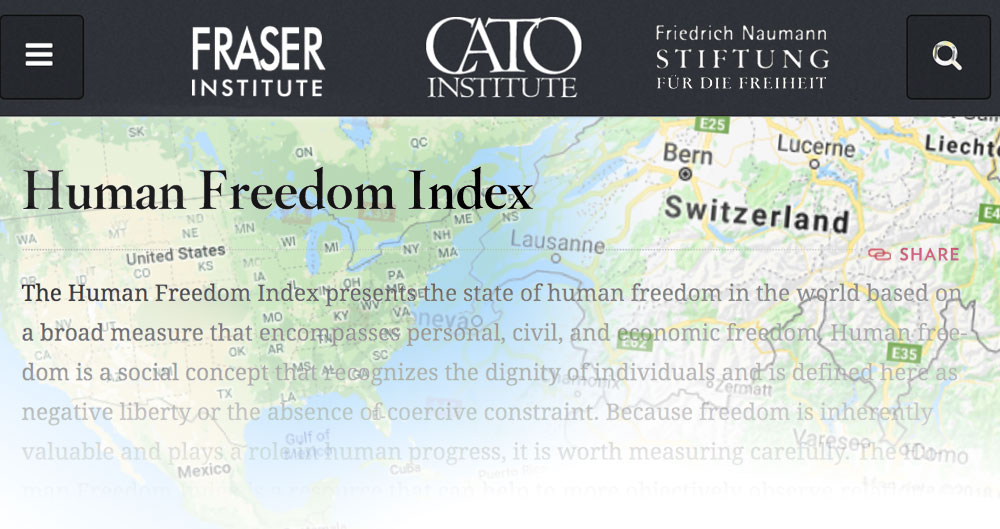“We’re Number 17!!!”
This lacks a certain triumphant note.
It is nothing like the “We’re Number 1!” the Swiss are now hollering as they pump their arms into the air, waving giant #1 foam fingers against the backdrop of snow-covered Alps.
Actually, knowing the Swiss, they are probably a bit more restrained. Still, you get the point.
Number 1 in what, you ask? Creamy, delicious chocolate, perhaps? Banking? Skiing?
Freedom.
The Human Freedom Index 2017, jointly published by the institutes Cato, Fraser, and Liberales, is hot off the presses. The report ranks the countries of the world on “personal, civil, and economic freedom.”
This year, Switzerland switched places with Hong Kong, which had come in first the year before. The U.S. moved up from 23rd place in 2016, but down from 2008, when we were challenging Top 10 status at Number 11.
“Weak areas [for the U.S.] include rule of law, size of government, the legal system and property rights,” according to a Cato video.
Let’s compare Switzerland to the United States. The 1848 Swiss Constitution creates 26 sovereign cantons (states), greatly influenced by our system of federalism. In the 20th century, Americans in 26 states and most localities borrowed from the Swiss, establishing a system of direct democratic checks on government — what we call ballot initiatives and referendums.
Both countries have constitutional limits on government, protecting individual rights — even from fully democratic tyranny. But in the freest nation in the world, Switzerland, citizens possess a powerful direct democratic check on their government at all levels . . . while we do not.
After all, we’re Number 17.
This is Common Sense. I’m Paul Jacob.






